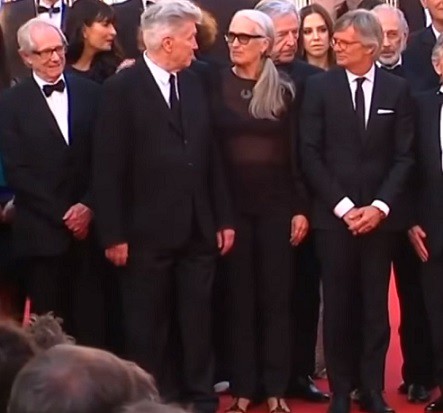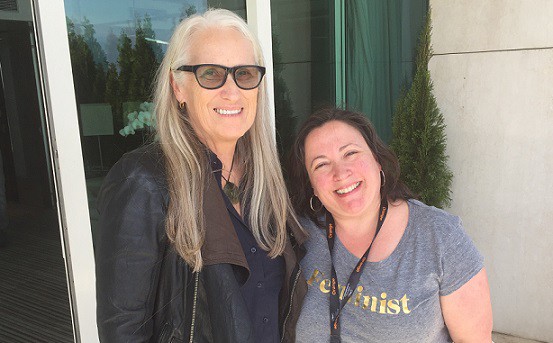
Cannes Film Festival celebrated its 70th anniversary this year. Just remember that only one female director — Jane Campion — has won a Palme d’Or. She took home the honor in 1993 for her brilliant “The Piano.” (She’s actually won two — her short film debut “Peel” won the Short Palme in 1986.) Campion was on hand for the anniversary festivities this week and in a picture that has gone around the world, she stands next to many a white male director as the festival celebrates itself.
Campion was here not for a movie, but to promote the second season of “Top of the Lake: China Girl.” It’s worth noting that Campion’s last two projects have been for TV. The fact that TV has been more welcoming to women creatives is not lost on anyone. Watching the first two episodes of this series was a high point of my week — way more interesting than many of the films I saw. “Top of the Lake: China Girl” employs some of our finest actresses at the top of their game. The cast is led by Elisabeth Moss (who I had the chance to meet and is even more awesome than I ever could have expected) who is having a career-best year with “The Handmaid’s Tale” as well as this tour de force. Moss said her inspiration for her “Top of the Lake” character, Robin, is Jodie Foster’s Clarice Starling in “Silence of the Lambs.”
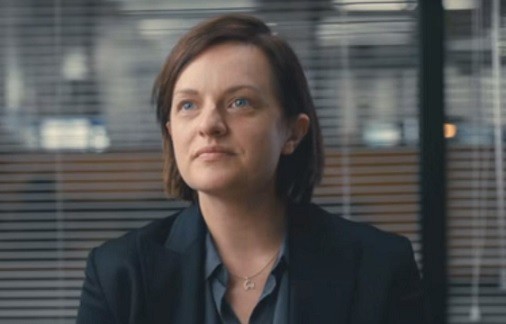
Moss is joined by the delightful Gwendoline Christie who said she wrote to Jane Campion saying how much she wanted to work with her. Campion fashioned the role of Miranda for her. In a roundtable, Christie revealed that she was told in drama school that she “would be told no a lot and that would have to do with my appearance.” Lucky for us she didn’t give up because she has created some seriously iconic female characters, most especially Brienne of Tarth in “Game of Thrones.” (Side note — Christie was also incredibly lovely, and everyone who I met is now in possession of our Cannes 2017 infographic and a Women and Hollywood pin.)
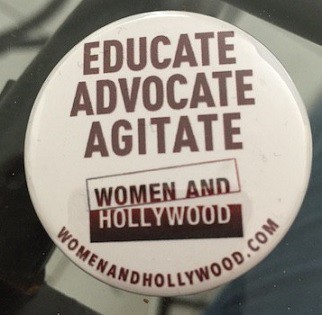
Alice Englert — Campion’s extraordinarily talented daughter — plays Mary in the new season of “Top of the Lake.” Nicole Kidman plays her adoptive mother. Kidman’s character is in the throes of her daughter’s rebellion that seems to be breaking her. The Oscar winner wears a grey wig in the role. Kidman also wrote to Campion asking for a tiny part in the show and of course she gave her a bigger one.
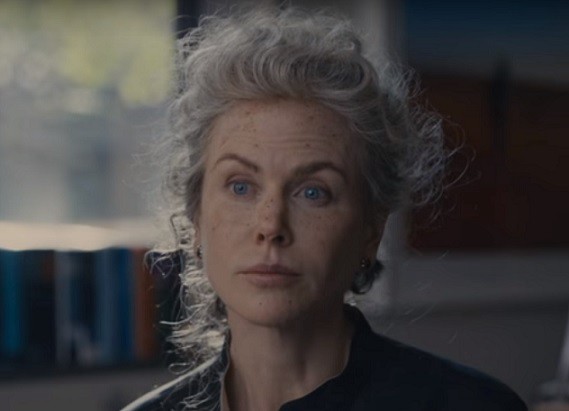
Kidman was in four projects here in Cannes and went on an awesome feminist tirade in the press conference for Sofia Coppola’s “The Beguiled” and declared that she will work with a female director every 18 months. She also said that she is acting more than ever as she turns 50.
Jane Campion is an enormous presence. She participated in the roundtable with her co-writer Gerard Lee and co-director Ariel Kleiman. She owned the room and as the creator of project, she infuses herself fully into it. She’s clearly deeply involved in all elements of the show even when she isn’t directing per say, and it’s this intensity that makes her need to get back to regular life in between projects, she explained. It’s not that she isn’t ambitious, but she doesn’t feel the need like so many other directors, particularly the men we see here in Cannes, to work non-stop. That is why it is so important to relish when we have something with her vision to experience.
The only thing that I take issue with is that in both seasons of “Top of the Lake” Campion brought in a younger male director to work with her. I would have liked to see her bring in younger female directors. (But she does put her name on the films of younger women directors to help them, so there’s that.)
Campion is outspoken about the lack of women directors and she did not shy away from the topic during the roundtable. She said that it’s clear that the “ratio is so low” and the “number of opportunities women get” is not enough. But she was optimistic. She felt that “change is in the air” and that we are experiencing a “feminization of story telling.”
I asked her if she had communicated with the other female directors who were participating in the 70th anniversary celebration because from what I could tell, the ones I noticed all wore pants. Her answer was “I have never felt comfortable in an evening gown. It’s a no-go zone for me.”
Lastly, she did mention, maybe in jest, that she had spoken with Andrea Arnold about creating a “wonder woman” film school for women directors. She and other successful female directors would come and mentor a group of women. That’s an idea that I hope comes to fruition.
